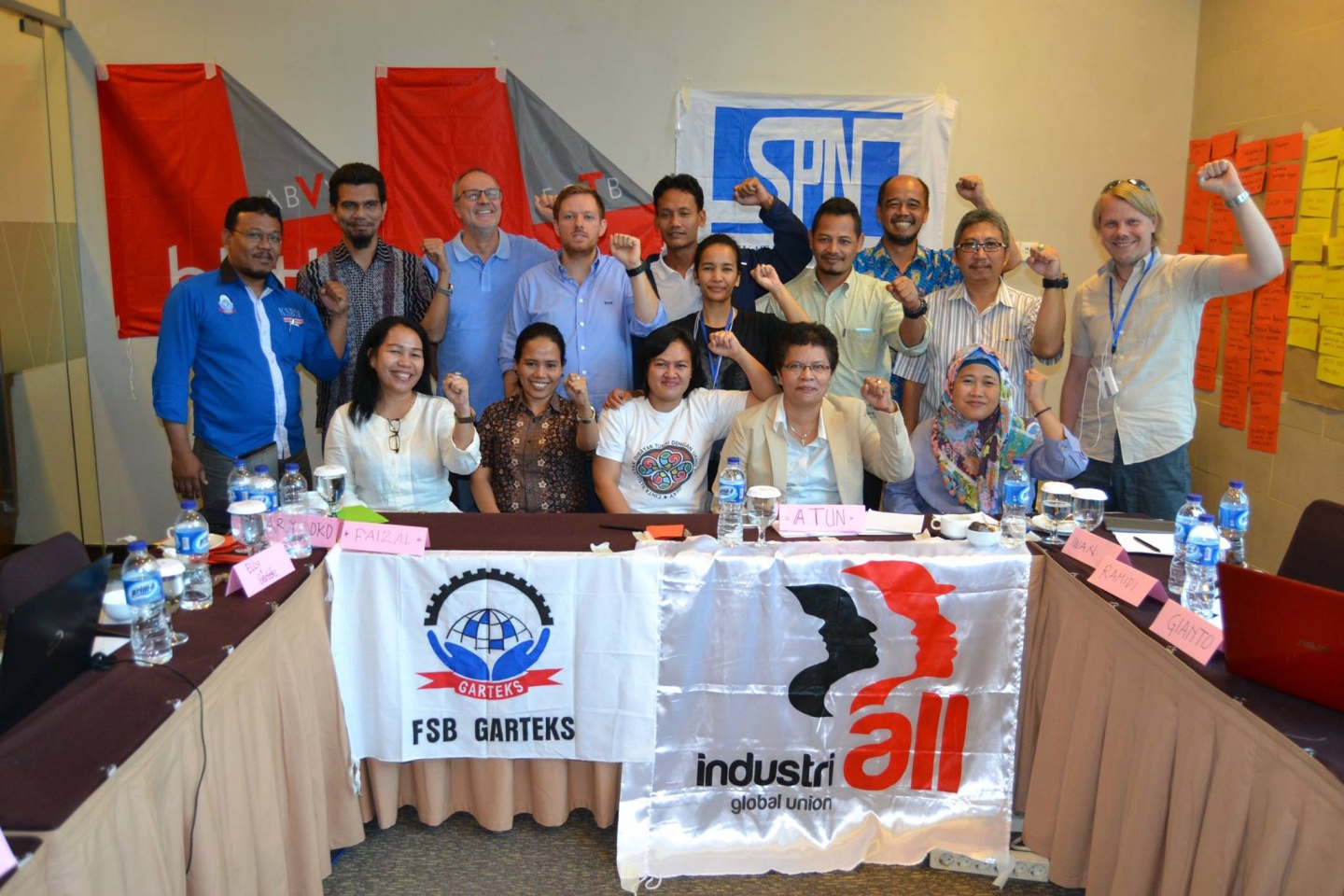Read this article in:
English
20 July, 2016A planning meeting was held in Bogor, Indonesia, from 12-18 July, as part of a project to support affiliates in the Indonesian textile, garment, shoe and leather sector.
IndustriALL’s Indonesian affiliates in the textile, garment, shoe and leather sector, Serikat Pekerja Nasional (SPN) and Garteks, as well as Belgian affiliate SETCA-BBTK, who are supporting the project, participated in the event.
The meeting found that the biggest obstacle to enhancing workers’ rights in Indonesia is low wages. There is a perception that Indonesian workers have the highest wages in South East Asia, after China, but the reality is quite different.
The minimum wage is legally fixed and resolved at the district level, ranging from US $80 to US $200 per month. However, the minimum wage is not applied in many factories, which request exemption for financial reasons. Many also use second and third tier subcontractors. Workers are hired on a daily basis, and report earning much less than the minimum wage, and far too little to cover their basic needs.
Big brands sourcing from Indonesia increasingly use suppliers that subcontract the work to factories that do not comply with legal labour standards, ILO Better Work or the Freedom of Association Protocol that Indonesian unions have signed with sportswear brands and their suppliers. The longer the supply chain, the worst the working conditions in the factories, and the more difficult for unions to reach the workers and bargain for better conditions.
Hence, the struggle is focused on increasing the wage.
Wages are not the only issue: health and safety is not addressed properly, with factories failing to take measures to prevent the inhalation of dust and fibre, one of the most obvious risks in the sector.
Furthermore, sexual harassment is rampant in the industry. Women workers are pressurized to respond positively to sexual demands for fear of demotion or in hope of a promotion. Many chose to leave their jobs.
Women workers in Indonesia are faced with many difficulties, including those forced on them by regulations. For example, they receive a lower tax cut when having a family compared to their male counterparts. The social situation also prevents them from fully engaging in trade union work.
IndustriALL affiliates in Indonesia resolved to address occupational health and safety and sexual harassment at factory level. They will pay special attention to women’s issues in bargaining with employers. They also resolved to design a strategy to promote the participation of women and young people, including in union leadership.
IndustriALL programmes officer Fanja Rasolomanana said: “Our affiliates in Indonesia are fighting hard for workers in the sector. It is very important to empower women in our unions so they can win better wages and conditions, and to tackle the long supply chains that undermine collective bargaining.”



